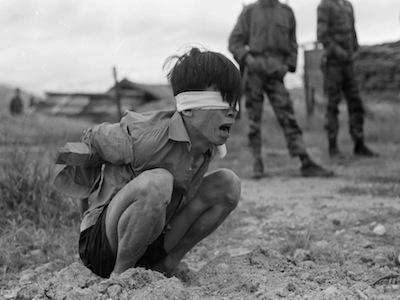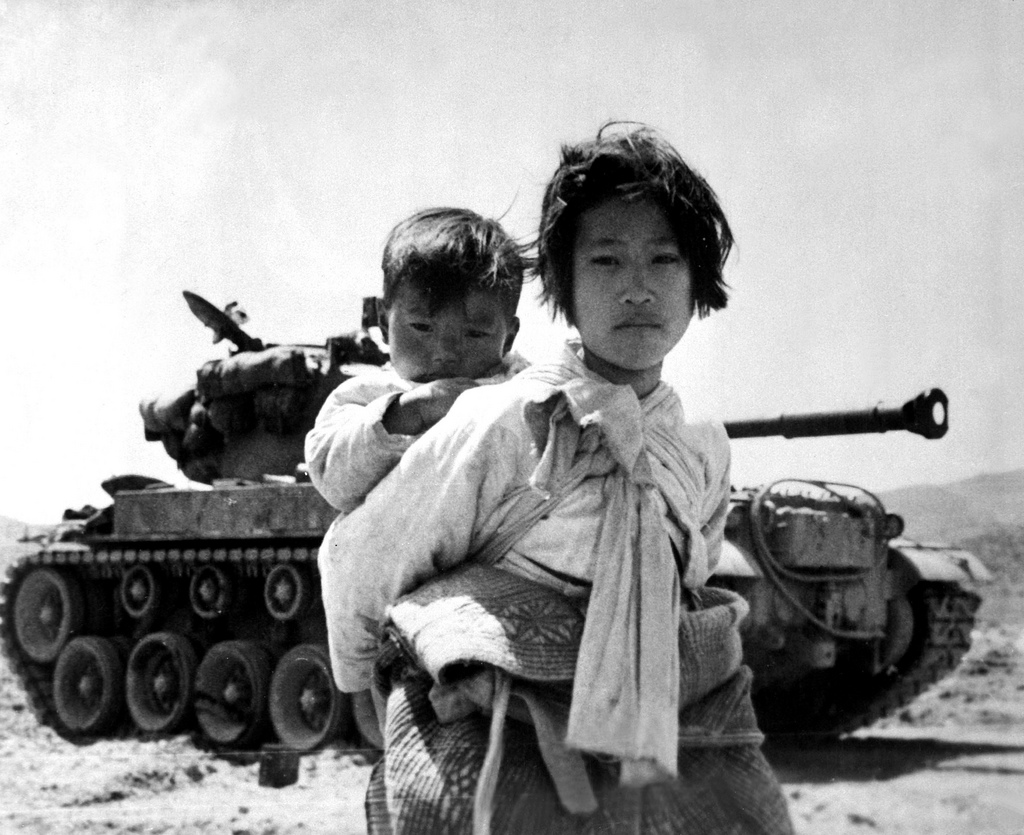The Silent Cries of Hiding Children: Fifty Years After MLK’s Riverside Church Speech

“In the cellar, darkness prevails day and night, and even when we are carrying a lighted candle, we see shadows dancing on the dark walls.” Gaston Bachelard, The Poetics of Space
“I found myself in full accord when I read its opening lines: ‘A time comes when silence is betrayal.’ Martin Luther King, Beyond Vietnam, April 4, 1967
Come, let’s play hide-and-seek, America’s favorite game.
As we all know, children love to play hide-and-seek, but they don’t like to have to hide and be sought. It’s the playing that they like; it allows them to control the terrifying IT, real and imagined, that seeks to find and destroy them, body and soul. In the game, even if whoever is IT catches you before you can reach the safety of home, there is always the next game and the opportunity to switch roles. In kids’ games you can always go home again.
But in the world where adults make the rules and pretend the emperor’s nakedness is a beautiful robe, children often have no second chances. And when they do, they must deal with the wounds that result from the adults’ treachery that often cripples them for life.
 Reading about all the terrified children who were hiding in the cellar of a building in Mosul, Iraq and were killed by America’s flying monsters, got me thinking about the day and night terrors of child victims everywhere. While doing so, a student of mine at the college where I teach, a woman of extraordinary sensitivity to the world’s suffering, shared with me a poem she wrote:
Reading about all the terrified children who were hiding in the cellar of a building in Mosul, Iraq and were killed by America’s flying monsters, got me thinking about the day and night terrors of child victims everywhere. While doing so, a student of mine at the college where I teach, a woman of extraordinary sensitivity to the world’s suffering, shared with me a poem she wrote:
Fear Remembered
At the top of the stairs,
A little girl waits in her dark room.
Facing the wall, afraid to go to sleep.
Blankets pulled up tight,
She holds her breath.Breathless as she hears the stairs creak,
Slow steps, heavy tread.
No ordinary monster this.
The father-tormentor coming in the night,
Will take his pound of innocent flesh.She lives in a house of fear and betrayal.
Where are the ones to love and trust?
Who will protect her from her “loved ones”?
Theses monsters don’t hide under the bed,
Or in dark closets.They live everyday lives.
Going to work.
Keeping house.
Appearing normal to outsiders.
Keeping their dark secrets.
A child unwillingly locked in a conspiracy of silence,
She goes off to school each day.At the top of the stairs,
A little girl waits in her dark room.
Facing the wall, afraid to go to sleep.
Blankets pulled up tight.
Breathless, she hears the creak of the stairs.
She waits for the shadow in the doorway.
The anonymous author, a middle-aged woman, is at least still alive, despite so many years of pain and shame. The children in Mosul, and in all the other places where children are slaughtered, will not be writing any poems. Having hidden, they were found and dispatched by faceless and “innocent” killers to another home from which none return. As Army Chief of Staff General Mark Milley put it last year,
“On the future battlefield, if you stay in one place for longer than two or three hours, you will be dead.”
That future is now.
In the American myth, our killers are always “innocent,” and, as Bob Dylan put it, “the executioner’s face is always well hidden.” If pushed by the obvious as in Mosul, Pentagon spokesmen say we’ll look into it, we might have played a role, and even if we played a role, the enemy was using these children, we were provoked, we’ll get to the bottom of it, we surely meant well, we regret any loss of life, but our investigation will take weeks, etc. The same bullshit they’ve been repeating for decades. When the weeks have gone by, any American who knows of or even cares about the atrocity will have forgotten about it and the media accomplices will have moved on to something else. The so-called investigation will result in a pile of lies that no one will read, even if they could find it. The myth of American innocent good intentions will carry on. Kurt Vonnegut was right: “So it goes.”
“The essence of the lie implies in fact that the liar actually is in complete possession of the truth which he is hiding,” wrote Jean-Paul Sartre in Existential Psychoanalysis.
Knowing this, and reading the poem, I wanted to vomit. And I felt the urge to strangle the people who killed these children and the father who raped his young daughter. I also knew that such a sentiment was wrong and lay at the heart of these evil acts. I thought of my hero, Dr. Martin Luther King’s words on compassion and non-violence; how it was the only way to break the circle of violence. Yet my rage stuck in my throat and I had a hard time swallowing the fact that Americans are capable of such deeds and skilled at hiding such truths from themselves. Or worse – that they didn’t care.
But then I realized I was an American, and despite our myth of innocence that has long dominated public consciousness, killing children is an American tradition.
Fifty years ago –April 4, 1967 – at Riverside Church in New York City , Dr. King stood in the pulpit and thundered out his warning: speaking of Vietnamese children he said:
They know they must move on or be destroyed by our bombs. So they go, primarily women and children and the aged….So far we may have killed a million of them, mostly children….thousands of the children, homeless, without clothes, running in packs on the streets like animals.
“Surely this madness must cease,” he added. “We must stop now.” But of course we didn’t stop. The government that continued to rain bombs and napalm down on the Vietnamese, the Laotians, and then the Cambodians, stopped MLK a year to the day later in Memphis and then Robert Kennedy two months later in Los Angeles. Nixon declared himself the peace candidate, proceeded to secretly sabotage Johnson’s peace endeavors, and then savagely waged the war for six more years, killing millions more. For his reward, the American people reelected him.
No, “these monsters don’t hide under the bed/or in dark closets/they live everyday lives.”
Jump to May 12, 1996. Lesley Stahl, on CBS’s 60 Minutes, asked Bill Clinton’s Secretary of State Madeleine Albright if the death of over 500,000 Iraqi children was worth the price of Clinton’s Iraq sanctions. To which Albright coolly replied,
“I think this is a very hard choice, but the price – we think the price is worth it.”
A few months later the American people overwhelmingly reelected Clinton and the killing of the Iraqis continued apace. Hey, he played the sax. Cool.
“Liberals,” conservatives. Democrats or Republicans – it makes no difference. Nixon, Reagan, Bush, Clinton, Bush, Obama, Trump – all killers who are embodiments of the myth of American innocence as the American people play dumb, hiding their heads in the sand as if the world can’t see their asses in the air. Desperate for false hope and phony innocence, they argue over the merits of their favorite killers to justify their complicity in a tradition of war-making where children’s deaths matter no more than Frank Perdue’s dead chickens.
Seeking the “hidden” truth takes little searching; it is our open dirty secret. We are not innocent. The myth must be destroyed. The world’s children shouldn’t have to hide from our predators, electronic and human. To continue to make them do so is to incur a heavy debt of guilt that will continue to mark us as silent accomplices in evil.
Martin King bravely raised his voice and paid with his life. If we want to honor him as we say we do, we should heed his words:
A true revolution of values will lay hand on the world order and say of war, ‘This way of settling differences is not just.’ This business of burning human beings with napalm, of filling our nation’s homes with orphans and widows, of injecting poisonous drugs of hate into the veins of peoples normally humane, of sending men home from dark and bloody battlefields physically handicapped and psychologically deranged, cannot be reconciled with wisdom, justice, and love. A nation that continues year after year to spend more money on military defense than on programs of social up-lift is approaching spiritual death.
Fifty years have elapsed since that warning. The world’s children keep hiding from our killing machines, and Americans still turn deaf ears to their cries. We may be spiritually dead now. It seems that way.
Hiding in a North Vietnamese bomb shelter in 1969 while he cradled a little boy in his arms, Fr. Daniel Berrigan S.J., anti-war rebel priest and poet, wrote the following lines as American bombs sought to kill him and all those he sheltered with in the underworld.
In my arms, fathered
In a moment’s grace, the messiah
Of all my tears, I bore reborn
A Hiroshima child from hell.
Can we dead awaken from our silent acquiescence?
Edward Curtin is a writer whose work has appeared widely. He teaches sociology at Massachusetts College of Liberal Arts. His website is http://edwardcurtin.com/

